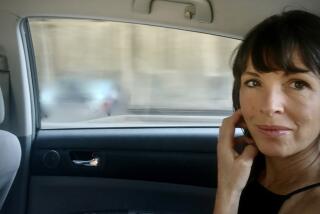The unbearable truth
- Share via
RACHEL ZUCKER is my kind of poet. Her third collection, “The Bad Wife Handbook” (Wesleyan University Press: 114 pp., $22.95), is blunt and beautiful, an evocation of both the rigors of marriage and the solaces and treachery of love. Zucker’s gift is an almost reckless bravery: “I am too happy to see him,” she writes of a man who’s not her husband. “Someone must be blamed. Perhaps / the therapist or my marrying young.”
Lest this give the impression that “The Bad Wife Handbook” is a book about domestic dissatisfaction, Zucker has something far more elusive -- and, frankly, dangerous -- in mind. What she’s after is to strip away the layers of adulthood: “a woman with young children is not a woman but a mammal, salve, croon, water carrier / she has a prize they all desire,” she notes in “Squirrel in a Palm Tree,” an extended poem that works almost like a diary of her inner life. Another long piece, “The Rise and Fall of the Central Dogma,” begins with a list of lies we tell ourselves: “That there was an alternative. / That I would stay. / That the lighthouse was useful. / That I would leave. . . . That ideas will save us.”
This is confessional writing at its most elemental, not the calculated revelation of so much modern memoir but a record of the thoughts we do not share. “I have banished and exalted humor,” Zucker tells us. “Was / young. Old. Showed my sadness / as a corpse shows the surgeon: / see my facts of living?” Such facts exist at the center of “The Bad Wife Handbook,” which reminds us that love and marriage are not always so consoling -- that even in the midst of family, we are ultimately alone.
-- David L. Ulin
--
More to Read
Sign up for our Book Club newsletter
Get the latest news, events and more from the Los Angeles Times Book Club, and help us get L.A. reading and talking.
You may occasionally receive promotional content from the Los Angeles Times.










